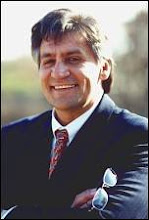The word “triage” is from the French word trier meaning to sort, separate, or select.
Micronutrient deficiencies could trigger age-related diseases.
In the context of human health, Prof. Ames believes that natural selection favors short-term survival over the long-term and that our body’s short-term survival is achieved by prioritising the allocation of scarce micronutrients. In other words, if you have a shortage of micronutrients in a major organ (such as the heart, for example) then your body will pull those necessary nutrients from non-essential sources.
This theory was first proposed in 2006 to explain why age-related diseases like heart disease, cancer, and dementia may be unintended consequences of mechanisms developed during evolution to protect against episodic vitamin/mineral shortages.
Although Prof. Ames is applying the theory to micronutrient deficiency, the idea is not new. Triage is precisely what the body does when it is attempting to balance your blood pH – it will draw alkaline reserves from a part of your body, sometimes leaving the latter in an acidic state. And if organs are left in an acidic state for prolonged periods, this is when disease can set in.
“If this hypothesis is correct, micronutrient deficiencies that trigger the triage response would accelerate cancer, aging, and neural decay but would leave critical metabolic functions, such as ATP production, intact,” explained Prof. Ames in the Proceedings of the National, Academy of Sciences.
“My triage theory makes sense,” says Prof. Ames. “And it is almost certainly going to be right.”
Professor Ames is also a senior scientist at Children's Hospital Oakland Research Institute (CHORI).
You can read the full story here: http://bit.ly/9CZoAv


No comments:
Post a Comment